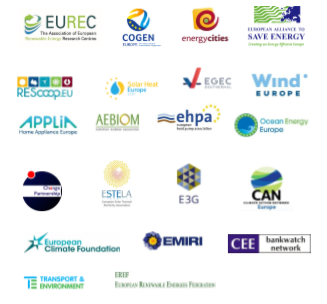Dear Commissioner Moedas, dear Commissioner Oettinger
14 Member States have pressed for at least 20% of the EU’s post-2020 budget (“Multi-annual Financial Framework”) to be spent on climate-relevant work, while the European Parliament is pushing for a 30% share as soon as possible. One of the programmes within the MFF will be FP9, supporting research and innovation. We want this programme to spend at least 35% of its budget on climate-related work.
Quotas of at least 20% and 35% respectively apply to the current MFF and the current programme supporting research and innovation, Horizon 20203. But in the years since they were adopted, climate has risen up the political agenda, most obviously with the Paris Agreement of December 2015. The new impetus behind climate action must be hardwired into the design of FP9. 35% should very much be considered a minimum.
Important work remains to be done on decarbonising transport as well as heating and cooling, reducing the cost of renewable energy, boosting energy efficiency and optimising the energy system as a whole. Simultaneously, manufacturing capability in the technologies of the future must be retained or expanded. In agreeing to “pursue efforts to limit the temperature increase even further to 1.5 degrees Celsius”, the Paris Agreement signatories have acknowledged the need to push harder for performance improvements in clean energy technology and accelerate its take-up.
Horizon 2020’s 35% earmarking has helped the European Commission comply with the entry requirement for Mission Innovation, the pact to double public clean energy R&D spending. It created the headroom in Horizon 2020 that is allowing the Commission to spend more on clean energy R&D from subheadings beyond “Societal Challenge – Secure, Clean and Efficient Energy” than it had intended in 2013. An earmarking in FP9 will make it easier for the European Commission to comply with a future MI target or similar initiatives.
Yours sincerely,

